
ON BOYS Podcast
Janet Allison, Jennifer LW Fink
Real Talk about Parenting, Teaching, and Reaching Tomorrow's Men
- 41 minutes 38 secondsMale Puberty Starts Sooner Than You Think
Modern male puberty starts sooner than you think.
Boys today may enter puberty as early as age nine. That’s why your 10-year-old’s mood swings might actually be linked to these new hormonal shifts. As Cara Natterson and Vanessa Kroll Bennett point out in their book, This Is So Awkward: Modern Puberty Explained, the first sign of puberty often comes with a slamming door.
Why Parents Miss the First Signs
Many parents aren’t ready for male puberty. Early physical changes can be subtle, and they usually appear just as boys begin seeking more privacy. According to Vanessa, it’s entirely possible you won’t notice the initial stages of puberty until your son’s behavior shifts dramatically.
When Your 10-Year-Old Acts More Like a Teen
Puberty hormones—mainly testosterone—don’t just change bodies; they shape moods, too. Sudden spikes are associated with outbursts and that well-known “swing to silence” so many adolescent boys display. Pediatrician Cara Natterson explains these hormone surges can escalate and crash within hours, and that emotional roller coaster is often what you see when your son acts like “a jerk.”
They Dislike the Swings, Too
Kids don’t enjoy these wild ups and downs any more than you do. Their brains are awash in hormones they don’t yet know how to handle, causing confusion and moodiness. In addition, boys’ emotional regulation skills aren’t fully developed, which is why parents, teachers, and other adults need to show empathy while holding them accountable.
Offer Room to Recover
“We have to give boys the benefit of the doubt,” Vanessa advises, emphasizing that many feel ashamed after a blow-up. By giving them space to cool off, then reconnecting later, you let them know there’s a path to re-enter the conversation without judgment.
Weathering the Adolescent Storm
It’s normal to feel grief, fear, and frustration as your son navigates puberty. Boys often distance themselves from parents during this time, which can feel like rejection. Don’t forget they usually “come back” after they’ve crossed the threshold into more mature adolescence.
A Messy Yet Meaningful Journey
Yes, your son might seem smelly, messy, or downright disrespectful right now—none of which means he’ll stay that way, or that you’ve parented poorly. As Vanessa says, guiding boys toward kindness, empathy, and thoughtfulness is a winding road filled with bumps.
Respond, Don’t React
When tempers flare, remain calm. Give your son the space he needs, and circle back once he’s cooled down. Teach him about emotions in those quieter moments and seek additional help if needed. By walking alongside him, you’ll both be better prepared to handle the challenges—and rewards—of growing up.
Links we mentioned (or should have) in this episode:
This is So Awkward: Modern Puberty Explained, by Cara Natterson, MD & Vanessa Kroll Bennett
lessawkward.com — Cara & Vanessa’s website (includes links to their books, newsletter, podcast, & talks)
The Puberty Podcast — Cara & Vanessa’s podcast (Don’t miss Jen on their podcast — Building Boys with Jennifer Fink)
Decoding Boys w Dr. Cara Natterson –– ON BOYS episode
The Truth About Parenting Teen Boys — the famous BuildingBoys post about 14-yr-old boys being a**holes
Puberty, Perimenopause, & Midlife Parenting — ON BOYS episode
Guy Stuff: The Body Book for Boys, by Cara Natterson
Guy Stuff Feelings: Everything You Need to Know About Your Emotions, by Cara Natterson
Sponsor Spotlight: IXL
The world’s most popular subscription-based learning site for K–12! Get 20% off at ixl.com/TODAY Check out IXL and use code TODAY for a great deal: https://www.ixl.com

Sponsor Spotlight: Hello Fresh
Get 10 FREE meals at HelloFresh.com/FreeONBOYS
Our Sponsors:
* Check out IXL and use my code TODAY for a great deal: https://www.ixl.com
Advertising Inquiries: https://redcircle.com/brands
Privacy & Opt-Out: https://redcircle.com/privacy2 January 2025, 12:00 pm - 40 minutes 18 secondsBest of 2024
Which ON BOYS episodes were the Best of 2024?
Photo by ALINA MATVEYCHEVA via Pexels
Your favorites include:
5. Needed: Boy-Friendly Schools
Tyler, a 16-year-old Texas boy, started struggling in middle school. Recess was no more. Classes were 90 minutes long. So, “he found it really hard to sit still in class,” says Julie Jargon, the Wall Street Journal Family & Tech columnist who interviewed Tyler for her series on boys and education. Now a high school student, Tyler suggests that “instead of making guys change the way they behave, maybe schools should change the way they’re structured.”4. Middle School: Misunderstood or Magic?
“This is a very pervasive story, that middle school is terrible. But it doesn’t have to be. We make it terrible by working directly against the developmental needs of middle schoolers and designing these buildings and classes in way that make their lives really hard,” says veteran educator Chris Balme, author of Finding the Magic in Middle School: Tapping into the Power and Potential of the Middle School Years.3. Modern Male Puberty is Awkward
Your son may well be annoying, thoughtless, disrespectful, disorganized, smelly, and messy during puberty. None of that means he’ll end up that way as an adult. And none of it means that you’re doing (or have done) something wrong.“The path to building kind, empathic, loving, thoughtful men is a very windy, bumpy road,” Vanessa says. “And at every step of the way, it can be really tempting to lose faith.”2. How to Raise a Healthy Gamer
“Right now, there is an antagonistic relationship between most parents & their kids around video gaming,” Dr. K says. “You think they need to cut back; they don’t think they have a problem. Then, as parents start to institute limits, children will try to undermine them. Even if you ‘win’ in this scenario, you lose.”It’s more helpful, he says, to establish a collaborative relationship.1. Set Boys Up for School Success
“It’s really essential that we, as parents & educators of boys, are preparing them to navigate the struggles within school,” says Dr. Todd (Jason) Feltman, author of Transforming into a Powerful Third, Fourth, or 5th Grade Navigator of School Success. “It’s not just the academic struggles but also the socialization, the physical and emotional struggles.”A few of our other 2024 favorites:
Navigating Youth Mental Health in the Digital Age
Emily Edlynn on A Healthier Approach to Tech
Dr. Niobe Way on Reimaging Boys
Uplifting Black Boys Benefits All Students
Sponsor Spotlight: IXL
The world’s most popular subscription-based learning site for K–12! Get 20% off at ixl.com/TODAY

Sponsor Spotlight: Hello Fresh
Get 10 FREE meals at HelloFresh.com/FreeONBOYS
Our Sponsors:
* Check out IXL and use my code TODAY for a great deal: https://www.ixl.com
Advertising Inquiries: https://redcircle.com/brands
Privacy & Opt-Out: https://redcircle.com/privacy26 December 2024, 12:00 pm - 52 minutes 54 seconds2024 Listener Fav
Gaming is a BIG part of boys’ lives today!
So, it’s no surprise that our March 14 conversation with Dr. K, How to Raise a Healthy Gamer, is our Listener Fav of 2024.
Dr. K (full name: Alok Kanojia) is a psychiatrist, dad, and life-long gamer. He knows video games and know what works. He also has deep compassion for gamers & their families. If you haven’t yet read his book, How to Raise a Healthy Gamer: End Power Struggles, Break Bad Screen Habits, and Transform Your Relationship with Your Kids, we highly recommend it!
Links we mentioned (or should have) in this episode:
How to Raise a Healthy Gamer: End Power Struggles, Break Bad Screen Habits, and Transform Your Relationship with Your Kids, by Alok Kanojia (aka Dr. K)
www.healthygamer.gg — Dr. K’s website
Why are Video Games So Important to Boys? — ON BOYS episode
The Evolution of Esports — ON BOYS episode
Video Game Addiction — ON BOYS episode
Emily Edlynn on a Healthier Approach to Tech — ON BOYS episode
The Link Between Freedom & Video Games — BuildingBoys blog post
Why Boys Play Video Games – BuildingBoys blog post
Sponsor Spotlight: IXL
The world’s most popular subscription-based learning site for K–12! Get 20% off at ixl.com/TODAY

Sponsor Spotlight: Hello Fresh
Get 10 FREE meals at HelloFresh.com/FreeONBOYS
Sponsor Spotlight: Boys Are Great
Boy-affirming merch!
Our Sponsors:
* Check out IXL and use my code TODAY for a great deal: https://www.ixl.com
Advertising Inquiries: https://redcircle.com/brands
Privacy & Opt-Out: https://redcircle.com/privacy19 December 2024, 12:00 pm - 53 minutes 44 secondsListen to Boys & Young Men
How often do we really listen to boys & young men?
Not nearly often enough! There’s been a lot of chatter lately about boys & young men, masculinity, and the growing gender gap in politics – and very little public input from boys & young men themselves. In this episode, Jen & Janet talk with Lance Walker, a 26 yr old man from Utah. Like so many males his age, Lance has learned that boys’ and men’s perspectives aren’t always welcome. As he says, “We are never given license to speak.”
We encourage you to listen as he describes his experiences in school (including being started on ADHD medication in 3rd grade) and in the world.
Takeaways:
- Boys’ perspectives on masculinity are often overlooked.
- There is a stigma associated with boys expressing their feelings.
- Open dialogue about gender dynamics is essential.
- Boys need to be included in conversations about their experiences.
- Understanding the role of community in boys’ development is important.
- Boys often feel shame in expressing their struggles.
- The future of gender discussions requires sensitivity and awareness. The emotional journey of becoming a man is complex and often fraught with societal expectations.
- Shame and responsibility are significant themes in discussions about masculinity.
- Perceptions of men as threats can lead to feelings of fear and vulnerability.
- Boys are often seen as needing to fit into a rigid educational model that may not suit them.
- Cultural perspectives on masculinity can shape how boys view themselves and their roles in society.
- Dialogue and understanding are crucial in addressing the challenges faced by boys and young men.
- The importance of recognizing boys as human beings with their own experiences and emotions.
- Educational systems may need to adapt to better engage boys in learning.
- There is a need for more voices from young men in discussions about masculinity and societal expectations.
- The conversation around masculinity must include diverse perspectives to foster understanding and growth.
Links we mentioned (or should have) in this episode:
ADHD with Ryan Wexelblatt the ADHD Dude — ON BOYS episode
Talking to Tween & Teen Boys — ON BOYS episode
Sports & Masculinity — ON BOYS episode
Sponsor Spotlight: IXL
The world’s most popular subscription-based learning site for K–12! Get 20% off at ixl.com/TODAY

Sponsor Spotlight: Hello Fresh
Get 10 FREE meals at HelloFresh.com/FreeONBOYS
Sponsor Spotlight: Boys Are Great
Boy-affirming merch!
Our Sponsors:
* Check out IXL and use my code TODAY for a great deal: https://www.ixl.com
Advertising Inquiries: https://redcircle.com/brands
Privacy & Opt-Out: https://redcircle.com/privacy12 December 2024, 12:00 pm - 51 minutes 43 secondsMale Suicide & Mental Health: A Father’s Story of Love & Loss
We gotta talk about male suicide and mental health.
If you or someone you know is having suicidal thoughts, you can call the 988 Suicide and Crisis Lifeline for help in the United States. Call 988 or 800-273-TALK (8255). The 988 Suicide and Crisis Lifeline is open 24 hours a day, every day. Services are also available en espanol.
More than 39,000 boys and young men die of suicide in the United States each year. The male suicide rate is 4 times that of females’ – and that fact isn’t widely known. Although there’s been a lot of discussion of the youth mental health crisis and suicidal ideation in recent years, few people are talking about the fact that most of those who die of suicide are boys and young men.
Anthony Tricarico was one of them. He was a “beautiful shooting star,” a young entrepreneur who loved snowboarding and bought a Camaro at age 16. Anthony died by suicide earlier this year, at age 16 1/2. From the outside looking in, Anthony had it all: a loving family, lots of friends, great grades, talent, and personality. His death was a shock to the community, as people realized, “If this could happen to Anthony, it could happen to any of us,” said his father, Neal Tricarico.
Takeaways:
- Autistic people/those on the autism spectrum are at increased risk of suicide
- COVID-19 has had a profound impact on youth mental health.
- There is often a disconnect between autism support and mental health services.
- Support systems for families in crisis are often lacking.
- Seasonal changes can significantly affect mental health.
- Parental control is limited; love does not guarantee safety.
- Community support can provide immense comfort during grief.
- The importance of love and connection transcends loss.
- Achievements do not equate to fulfillment in children.
- Open conversations about mental health are essential.
- Creating a movement can honor lost loved ones and raise awareness.
- Grief can lead to profound spiritual growth and connection.
Links we mentioned (or should have) in this episode:
AnneMoss Rogers on Suicide Prevention & Struggling Teens — ON BOYS episode
Loving Someone With Suicidal Thoughts — ON BOYS episode
What You Need to Know About Boys & Suicide — ON BOYS episode
NAMI — National Alliance on Mental Illness (has support groups for parents!)
Suicide & Autism — a report from the UK
Neal's contact info:
Email: [email protected]
Instagram: @nealtricarico
Facebook: https://www.facebook.com/neal.tricarico/
LinkedIn: https://www.linkedin.com/in/nealtricarico/
Sponsor Spotlight: IXL
The world’s most popular subscription-based learning site for K–12! Get 20% off at ixl.com/TODAY

Sponsor Spotlight: Hello Fresh
Get 10 FREE meals at HelloFresh.com/FreeONBOYS
Sponsor Spotlight: Boys Are Great
Boy-affirming merch!
Our Sponsors:
* Check out IXL and use my code TODAY for a great deal: https://www.ixl.com
Advertising Inquiries: https://redcircle.com/brands
Privacy & Opt-Out: https://redcircle.com/privacy5 December 2024, 12:00 pm - 49 minutes 48 secondsExploring the Gender Gap
If you heard anything at all about the 2024 U.S. presidential election, you likely encountered the term "gender gap."
More than half of female voters (53%) voted for Kamala Harris; more than half of male voters (also 55%) voted for Donald Trump. Among young voters, the gender gap was even more pronounced: 61% of women aged 18-29 voted for Harris, compared to 49% of males.
Societal and political gender gaps are widening in other countries as well. Mark Sutton, director of The Boys Initiative & author of How Democrats Can Win Back Men, joins us to explore the factors underlying the gender gap and ways we can help boys and men thrive alongside girls and women.
Takeaways:
- The gender gap in voting reflects deeper cultural divides.
- Men's issues are often overlooked in political discourse.
- Human well-being should be a shared goal across genders.
- Health disparities show men dying younger than women.
- Political parties need to address the needs of all voters.
- Support for women's health should not exclude men's health.
- There is a growing discontent with both major political parties.
- Unity among moderate voters can lead to positive change.
- The future of gender representation is evolving positively. Support for women in leadership is crucial.
- Local involvement in politics can make a difference.
- Cultural backlash can lead to divisive movements.
- Understanding different perspectives is essential.
- The male vote plays a significant role in elections.
- Engaging in conversations about gender is necessary.
- Listening to others can foster better understanding.
- Systemic issues affect boys and young men.
- Advocacy for children's needs is a nonpartisan issue.
Links we mentioned (or should have) in this episode:
Men & the 2024 Election -- Mark's Substack
How Democrats Can Win Back Men: Why Understanding Male Voters & Their Issues is Vital for Democratic Victory -- Mark's book
Sponsor Spotlight: IXL
The world’s most popular subscription-based learning site for K–12! Get 20% off at ixl.com/TODAY

Sponsor Spotlight: Hello Fresh
Get 10 FREE meals at HelloFresh.com/FreeONBOYS
Sponsor Spotlight: Boys Are Great
Boy-affirming merch!
Our Sponsors:
* Check out IXL and use my code TODAY for a great deal: https://www.ixl.com
Advertising Inquiries: https://redcircle.com/brands
Privacy & Opt-Out: https://redcircle.com/privacy28 November 2024, 12:00 pm - 43 minutes 51 secondsNavigating Youth Mental Health in the Digital Age
How can we support our boys’ well-being during a youth mental health crisis? How can we help them navigate life in this digital age?
Katey McPherson has been working on these issues for years. Since we last talked in 2019, she and others have helped the state of Arizona pass a bundle of laws intended to decrease youth suicide. She’s also helped countless schools, communities, and families learn how they can support youth mental health in the current digital age.
In this episode, Janet & Katey discuss:
- How to keep kids safe (safer?) when using school-issued computers & other digital devices
- Targeting of kids on social media and online gaming platforms
- Kids’ online relationships
- Tech tools to help you monitor your kids’ online activities
- School shootings (and how we can prevent them)
- Talking to kids about suicidal thoughts
- Increasing the likelihood that your child will talk to you about tough things
- Supporting youth mental health
Takeaways:
- We are facing significant challenges affecting our youth’s mental health.
- Legislative changes can lead to improved suicide prevention resources.
- Parents must understand the limitations of school-issued devices at home.
- Social media can exacerbate feelings of exclusion and anxiety in youth.
- Community support is crucial in preventing school violence.
- Suicidal ideation often precedes violent actions in youth.
- Open communication about mental health is essential for parents.
- AI is becoming a critical tool in monitoring student safety.
- It’s never too late to implement changes in parenting strategies.
- Youth need coping strategies to deal with emotional pain.
Links we mentioned (or should have) in this episode:
What You Need to Know About Boys & Suicide (w Katey McPherson) — ON BOYS episode
Red Flags, Safety Nets, & School Shootings — BuildingBoys post
Katey's website is currently under construction. If you'd like to reach her, you can email her at [email protected]
Sponsor Spotlight: Hello Fresh
Get 10 FREE meals at HelloFresh.com/FreeONBOYS
Sponsor Spotlight: IXL
The world’s most popular subscription-based learning site for K–12! Get 20% off at ixl.com/TODAY

Our Sponsors:
* Check out IXL and use my code TODAY for a great deal: https://www.ixl.com
Advertising Inquiries: https://redcircle.com/brands
Privacy & Opt-Out: https://redcircle.com/privacy21 November 2024, 12:00 pm - 41 minutes 27 secondsRaising Boys Beyond the Man Box
Do you know what the “man box” is?
Your boys do, whether they know the term or not. The “man box” is the set of expectations, perceptions, and behaviors that are considered “manly” in our society.
In this episode, Jen, Janet, and Ted Bunch, Chief Development Officer of A Call to Men, explore the complexities boys face in a world that still clings to outdated ideas about masculinity. Ted shares his perspective on how we can empower boys to live authentically, develop respectful relationships, and move beyond the limitations of the “Man Box,” which often keep boys from becoming their true selves.
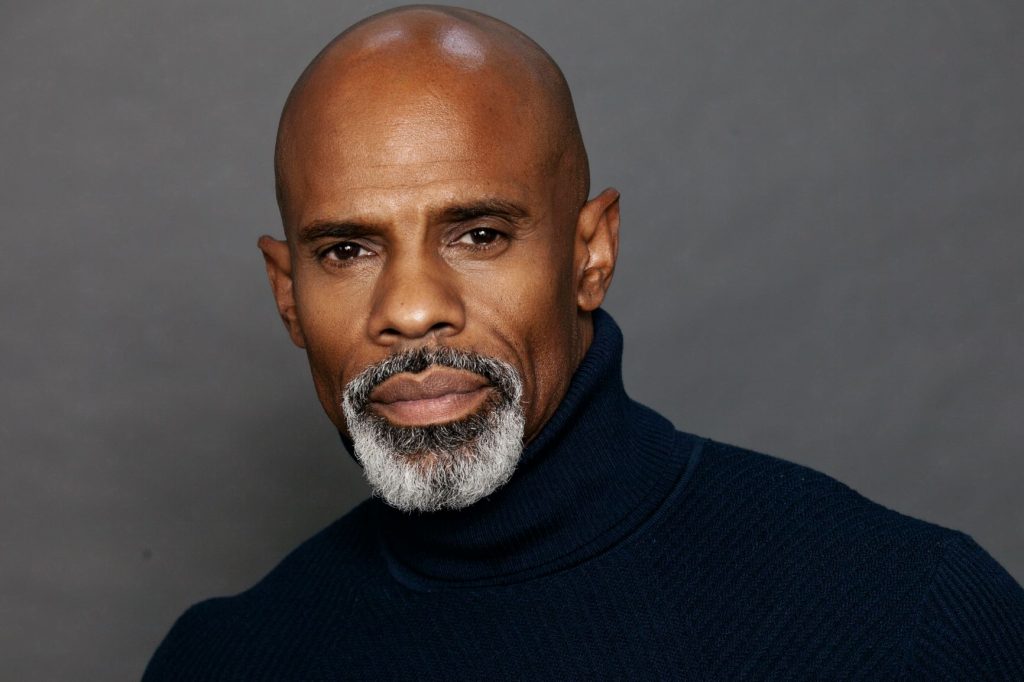 Ted Bunch
Ted BunchTogether, they discuss ways parents and caregivers can help boys embrace their emotions, communicate openly, and understand the importance of consent. Ted also addresses tough topics, including the impact of pornography, the cultural confusion surrounding sexual consent, and how societal expectations can distort boys’ perceptions of masculinity. Through honest, practical conversations, this episode gives listeners the tools to support boys as they navigate these challenges and to foster connections that build character, respect, and self-awareness.
In this episode, Jen, Janet & Ted discuss:
- How to help boys find and express their authentic selves
- The pervasive “Man Box” and how to break free of it
- Why boys struggle to define consent—and how to help
- Pornography’s impact on boys’ relationships
- Conversations dads and caregivers need to have with boys
- Encouraging boys to recognize the effects of their actions on others
- Understanding and addressing the impact of sexual abuse on boys
Links we mentioned (or should have) in this episode:
A Call to Men — includes helpful information & data, as well as links to their programs
Tony Porter’s TED Talk about the Man Box
What I’ve Learned Since My Son Came Out — article by Ted, mentioned at 38:37
The New Masculinity — ON BOYS episode
Empowering Boys to Challenge Rape Culture — ON BOYS episode
Gender Norms Limit Boys (& Girls!) — ON BOYS episode
Sponsor Spotlight: IXL
The world’s most popular subscription-based learning site for K–12! Get 20% off at ixl.com/TODAY

Our Sponsors:
* Check out IXL and use my code TODAY for a great deal: https://www.ixl.com
Advertising Inquiries: https://redcircle.com/brands
Privacy & Opt-Out: https://redcircle.com/privacy14 November 2024, 12:00 pm - 49 minutes 7 secondsAmy Lang Discusses Puberty, Perimenopause, & Neurodivergence
Puberty, perimenopause, and neurodivergence affects brains and bodies.
And in two or more of those things are going on in our household at the same time…well, things can get particularly challenging, says Amy Lang, founder of Birds & Bees & Kids.
Amy & Janet discuss it all in this ON BOYS episode
Links we mentioned (or should have) in this episode:
The 3 Key Things Your Neurodivergent Boy Needs to Know about Sex (and 3 Things You Need to Know)
Peri-menopause & Puberty: The Match Made in Heck – Get tickets here
Tue Nov 19, 2024 7:00 PM – 8:00 PM PST
Birds & Bees & Kids — Amy’s website
Resources recommended by Amy:
You Know, Sex: Bodies, Gender, Puberty, And Other Things
Sex Talks With Tweens: What To Say & How To Say It
BARK (inside US)
Qustodio (monitoring outside US)
Sex Ed for Neurodiverse Kids – ON BOYS episode w Amy Lang
Keeping Boys Safe Online (w Amy Lang) — ON BOYS episode
Talk to Boys About Sex (w Amy Lang) — ON BOYS episode
Puberty, Perimenopause, & Midlife Parenting — ON BOYS episode
Breakthrough Session for Family Coaching
Schedule your no-cost call with Janet at https://boysalive.com/call
Sponsor Spotlight: Hello Fresh
Get 10 FREE meals at HelloFresh.com/FreeONBOYS
Sponsor Spotlight: IXL
The world’s most popular subscription-based learning site for K–12! Get 20% off at ixl.com/TODAY

Our Sponsors:
* Check out IXL and use my code TODAY for a great deal: https://www.ixl.com
Advertising Inquiries: https://redcircle.com/brands
Privacy & Opt-Out: https://redcircle.com/privacy7 November 2024, 12:00 pm - 40 minutes 34 secondsJanet & Jen on Life & Raising Boys
Raising boys isn’t easy. Living isn’t easy! But with patience, trust, and community support, it’s easier — & more pleasant.
In this wide-ranging conversation, Janet Allison & Jennifer L.W. Fink , the hosts of ON BOYS podcast, discuss the reality of raising boys in 2024.
Takeaways:
- Nobody has it all figured out.
- Letting there be room for not knowing is crucial.
- Learning to tolerate discomfort is part of the process.
- Trusting the unfolding of our children’s development is essential.
- You are a different parent than you were a year ago.
- Boy development is trustworthy and unique to each child.
- Watch your boys, not the clock; focus on their growth.
- Look at your kid, not the milestones set by society.
- Parenting is the greatest personal development course.
- Let go and let us be your safety net.
Links we mentioned (or should have) in this episode:
Dealing with Change, Anxiety, & Energy (Listener Q & A) — ON BOYS episode
Trust — BuildingBoys blog post
Trust Your Boys — BuildingBoys blog post
Breakthrough Session for Family Coaching
Schedule your no-cost call with Janet at https://boysalive.com/call

Sponsor Spotlight: Hello Fresh
Get 10 FREE meals at HelloFresh.com/FreeONBOYS
Sponsor Spotlight: IXL
The world’s most popular subscription-based learning site for K–12! Get 20% off at ixl.com/TODAY

Sponsor Spotlight: Avoila
Use code ONBOYS to save 10% when you shop Avoila Nourishing Face Oil

Our Sponsors:
* Check out IXL and use my code TODAY for a great deal: https://www.ixl.com
Advertising Inquiries: https://redcircle.com/brands
Privacy & Opt-Out: https://redcircle.com/privacy31 October 2024, 11:00 am - 45 minutes 10 secondsAndrew Reiner: What Boys Need
Boys need support, not disdain
In June 2024, Andrew Reiner, author of Better Boys, Better Men: The New Masculinity That Creates Greater Courage and Emotional Resiliency, published an article entitled “Our culture’s trashing of boys & men is having toxic consequences.”
In this episode, he and Jen discuss what boys need & we can best support boys.
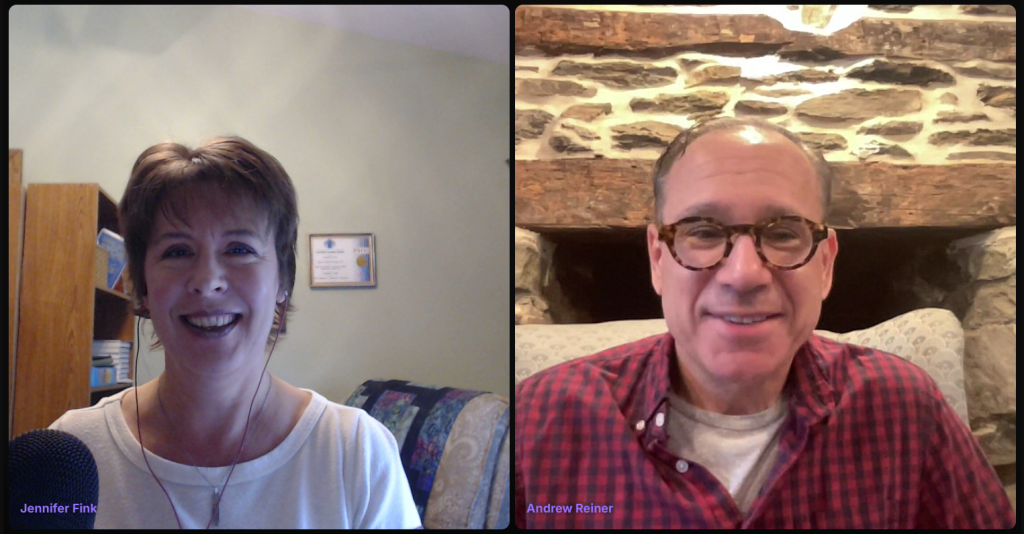
Takeaways:
- Boys need support, not disdain.
- Cultural perceptions of masculinity can be harmful.
- Media often portrays boys negatively.
- Boys are falling behind in education.
- It’s important to understand boys’ emotional needs.
- Parents and educators play a crucial role.
- Challenging traditional masculinity is necessary.
- Creating safe spaces for boys is essential.
- Engaging boys in education requires new approaches.
- Researching boys’ experiences is vital for change.
Links we mentioned (or should have) in this episode:
andrewreinerauthor.com –– Andrew’s website
Andrew Reiner: Building Boys’ Mental Health & Resiliency — ON BOYS episode
Better Boys, Better Men: The New Masculinity that Creates Greater Courage and Emotional Resiliency, by Andrew Reiner
The Trouble with Boys Isn’t Boys — article by Andrew
Young, Male, & Adrift — article by Andrew
Boys are Great shop — boy-affirming merch!
Sponsor Spotlight: Hello Fresh
Get 10 FREE meals at HelloFresh.com/FreeONBOYS
Sponsor Spotlight: IXL
The world’s most popular subscription-based learning site for K–12! Get 20% off at ixl.com/TODAY

Sponsor Spotlight: Avoila
Use code ONBOYS to save 10% when you shop Avoila Nourishing Face Oil

Our Sponsors:
* Check out IXL and use my code TODAY for a great deal: https://www.ixl.com
Advertising Inquiries: https://redcircle.com/brands
Privacy & Opt-Out: https://redcircle.com/privacy24 October 2024, 11:00 am - More Episodes? Get the App
Your feedback is valuable to us. Should you encounter any bugs, glitches, lack of functionality or other problems, please email us on [email protected] or join Moon.FM Telegram Group where you can talk directly to the dev team who are happy to answer any queries.
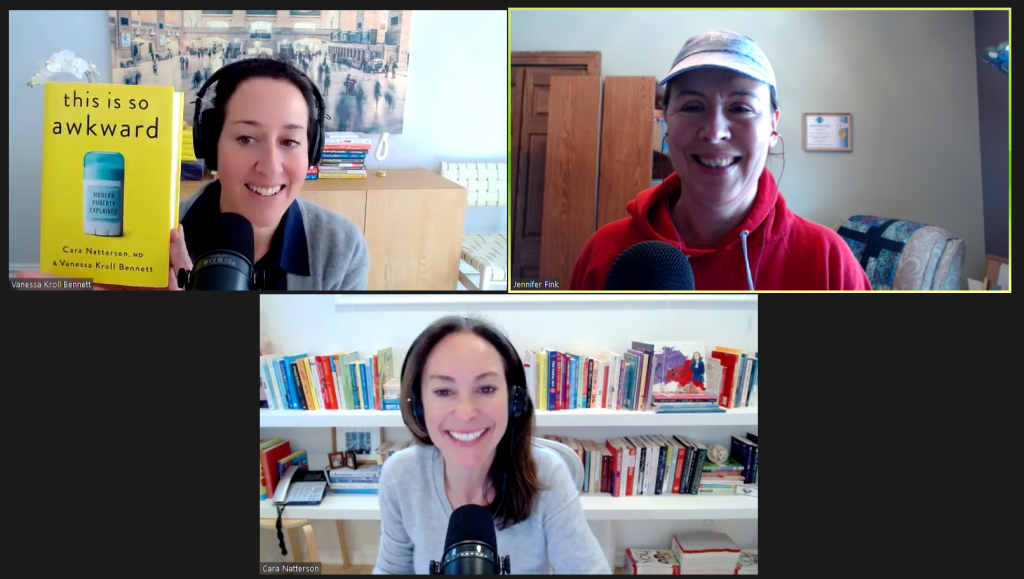


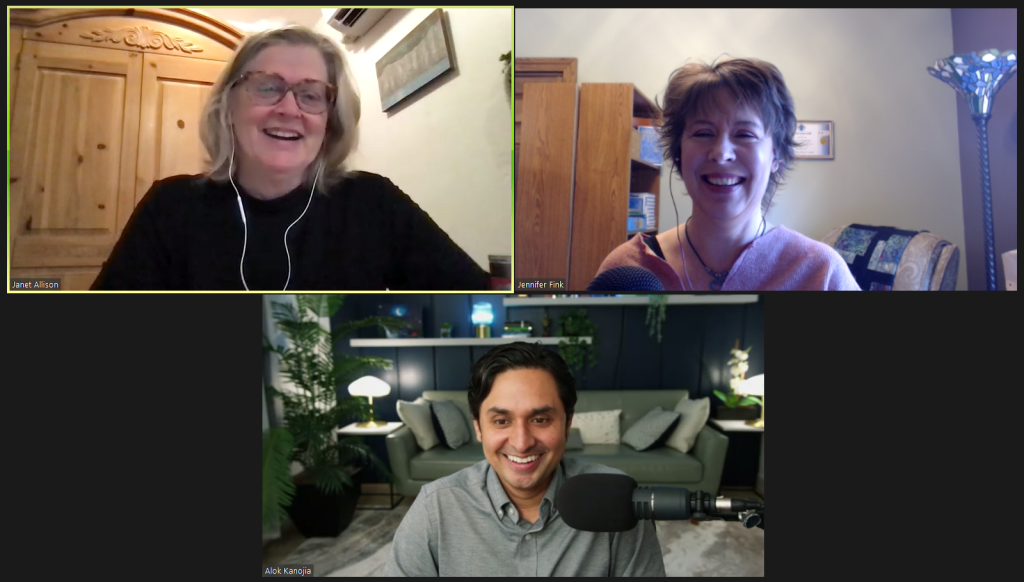

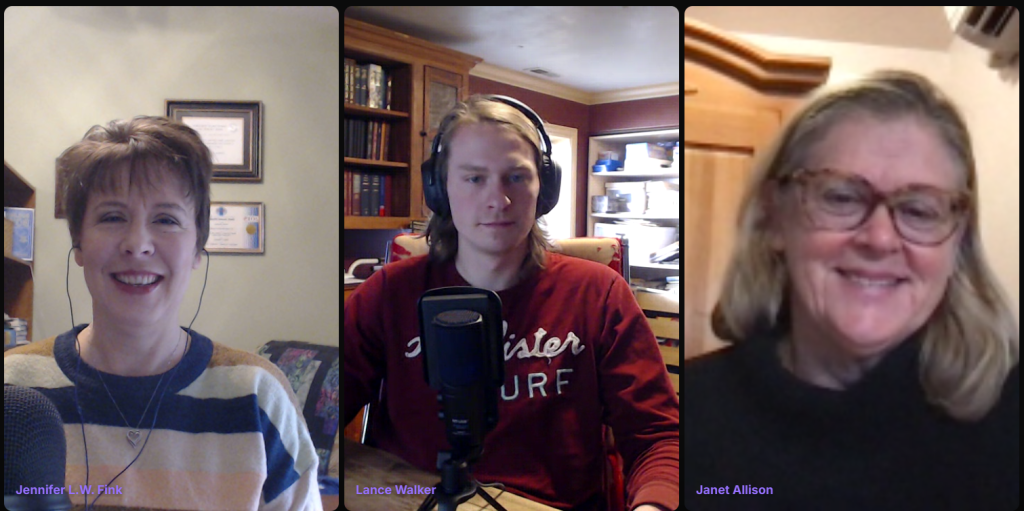
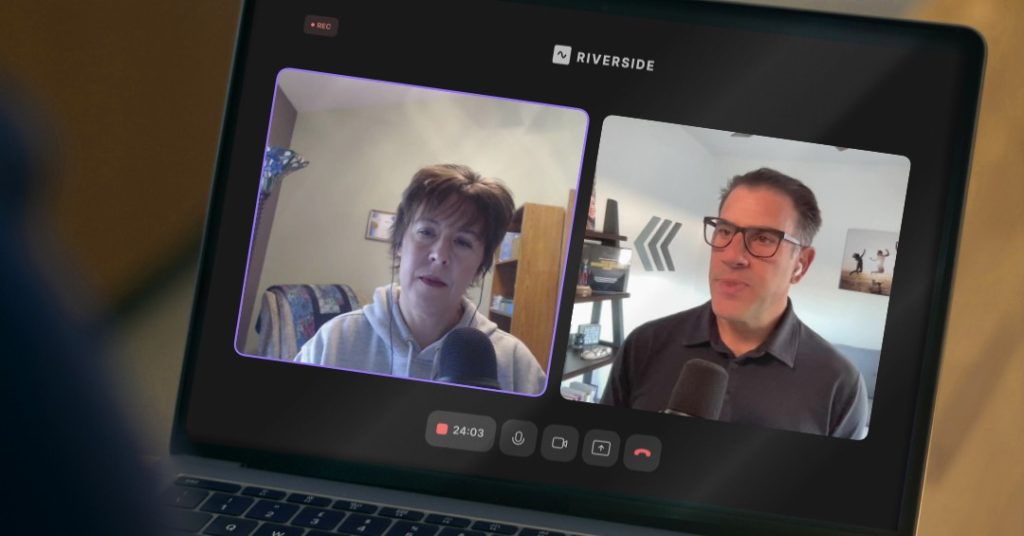
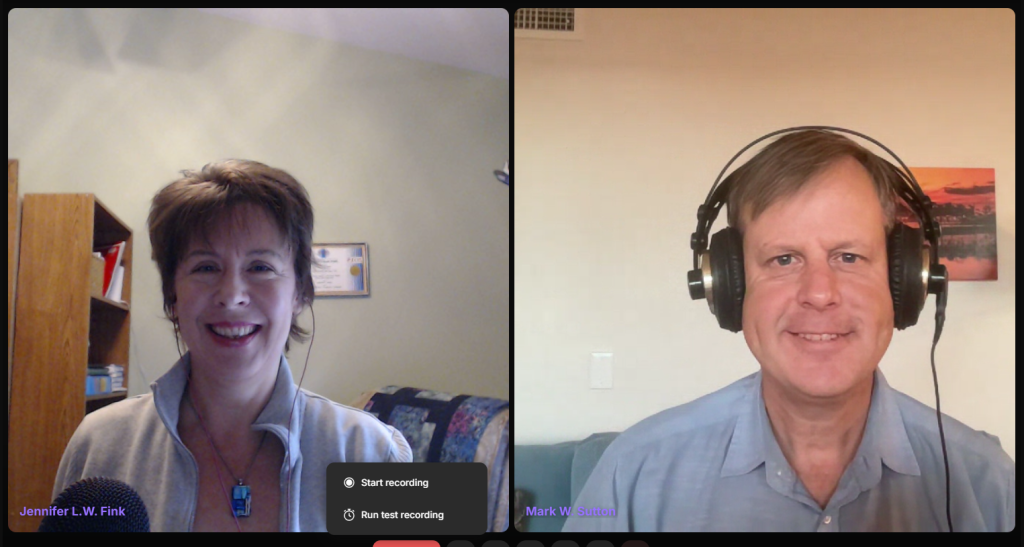
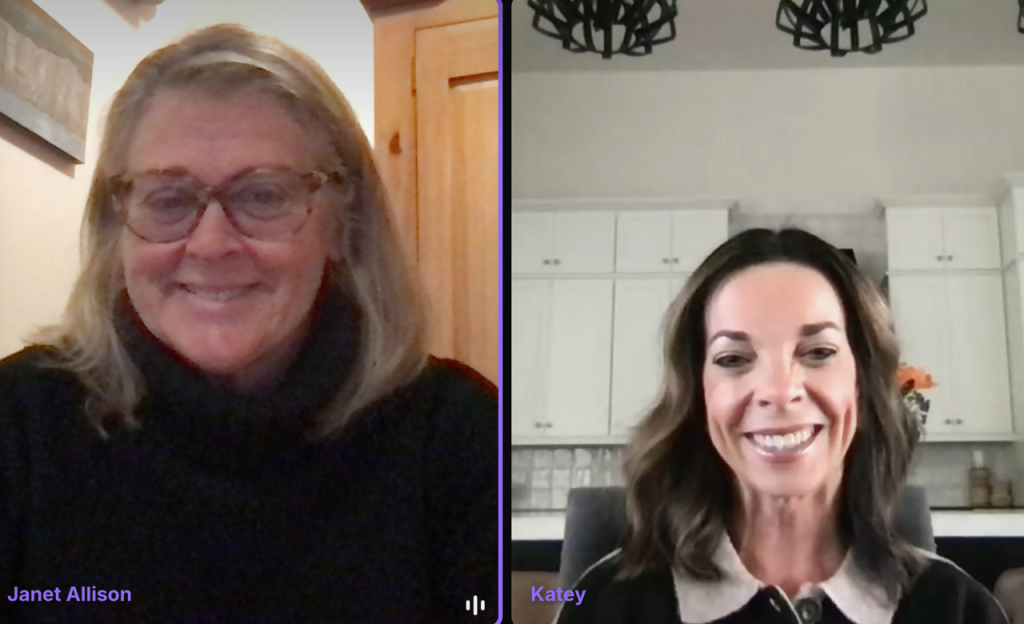
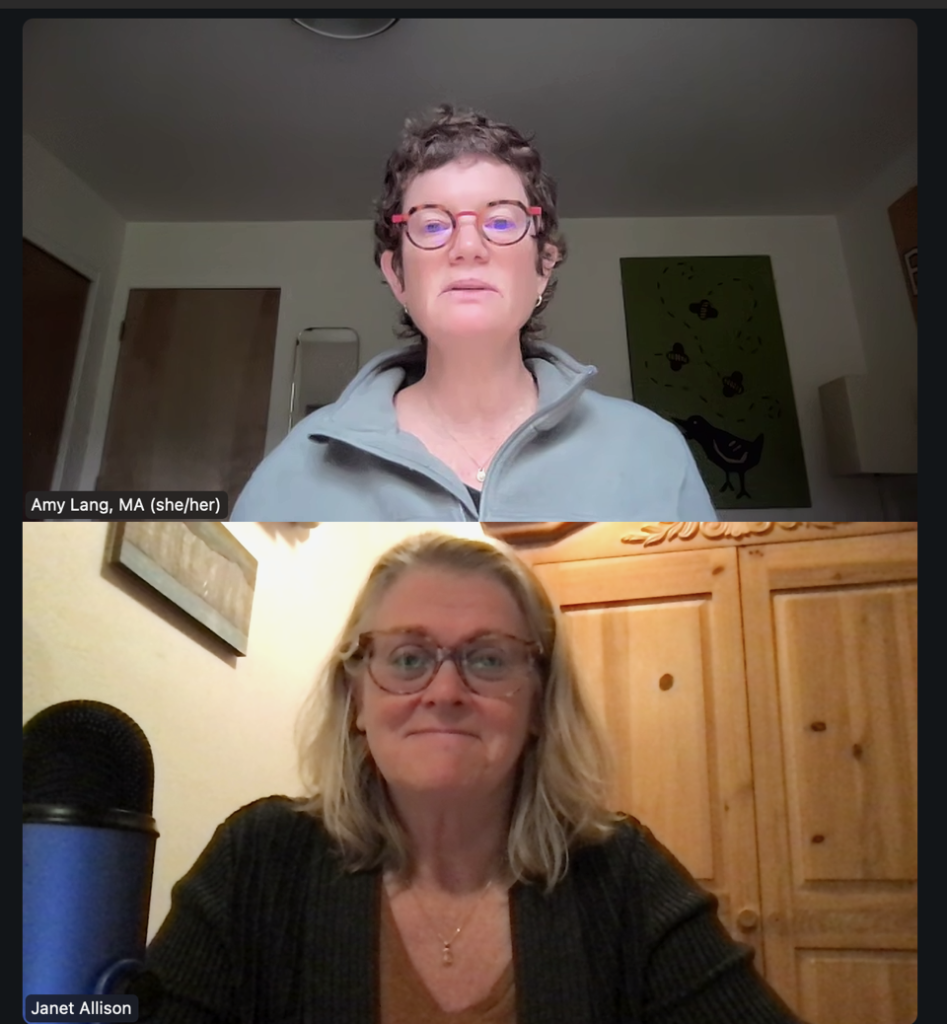
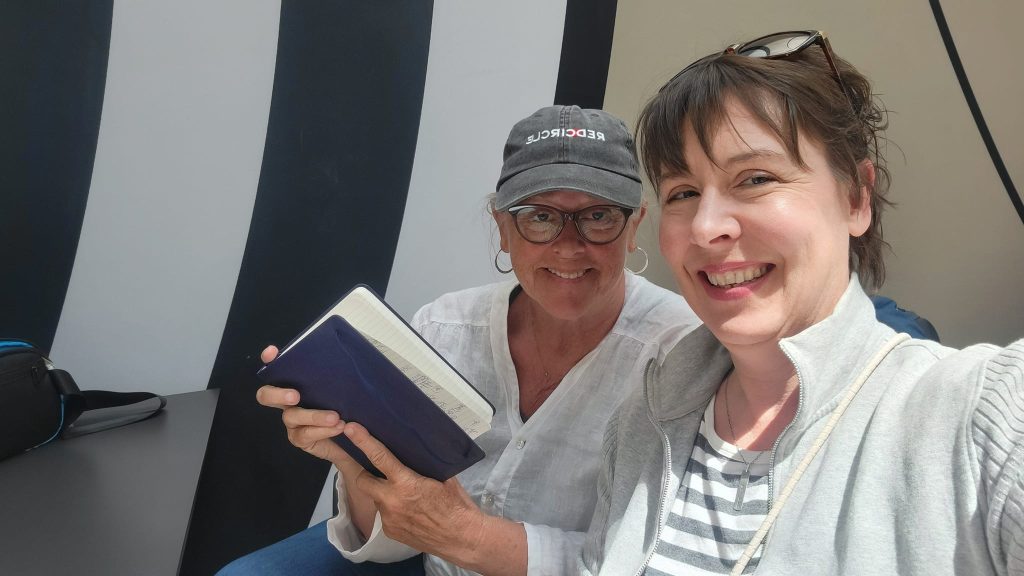
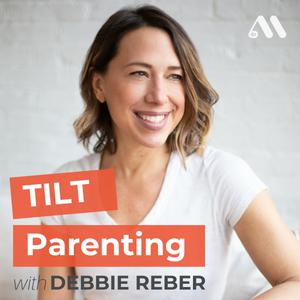 TILT Parenting: Raising Differently Wired Kids
TILT Parenting: Raising Differently Wired Kids
 Beautifully Complex
Beautifully Complex
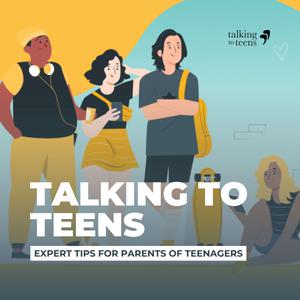 Talking To Teens: Expert Tips for Parenting Teenagers
Talking To Teens: Expert Tips for Parenting Teenagers
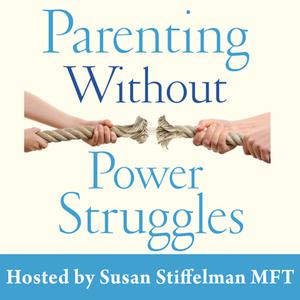 Parenting Without Power Struggles
Parenting Without Power Struggles
 Raising Good Humans
Raising Good Humans
 This Is So Awkward
This Is So Awkward